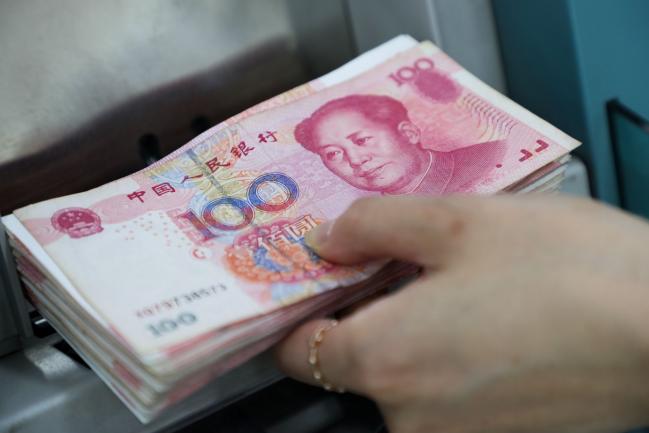(Bloomberg) -- China Investment Corp. is looking for more resilient assets in markets battered by the coronavirus pandemic as the nation’s $941 billion sovereign wealth fund seeks to boost long-term returns, Executive Vice President Zhao Haiying said.
The Beijing-based company added to its investments in credit markets in recent months, especially investment-grade loans in the U.S., after the Federal Reserve eased a liquidity crunch, Zhao said in an interview with Bloomberg News on Saturday. CIC, as the fund is known, also bolstered holdings in healthcare and information technology stocks and added exposure in regions like Asia where there was “less uncertainty” about the spread of the virus, she said.
CIC, led by Chairman Peng Chun, is finetuning its investment strategies. It sees a diversified portfolio as the best way to weather its biggest test since inception in 2007. A plan to boost alternative and direct investments to 50% of global assets by the end of 2022 remains unchanged, with the private portfolio, which includes real estate and private equity, avoiding any “serious damage” even as cash flows slow, Zhao said.
“As a long-term investor, we want to invest in growth,” Zhao said in Beijing. “Given the many external shocks, you need to be more focused on the more resilient areas, strategies and themes, and avoid fragile areas.”
Hedge-Fund Allocations
CIC’s overseas investments returned about 17% last year based on unaudited results, she said, as global stocks rallied. That comes close to a record 17.6% gain in 2017 and reverses a loss in 2018 when equities tumbled.
The pandemic and the collapse in global oil markets have caused more serious disruptions to other sovereign wealth funds. Norway, for example, is planning to draw a record 382 billion kroner ($38.2 billion) from its wealth fund, forcing the world’s largest sovereign investor to embark on a historic asset sale to generate cash.
Although CIC doesn’t have big annual expenditure needs, the firm checked on its liquidity requirements early in the year to maintain its position as a long-term investor, such as the ability to meet capital calls, Zhao said. CIC’s derivatives investments avoided the liquidity squeeze seen in some other complex products, she said.
While the steep declines in global equity markets earlier in 2020 made stocks the hardest hit asset class for many investors, there has since been a “very good rebound,” Zhao said. Fixed-income investments helped mitigate volatility in equities, and CIC’s hedge-fund allocations, among the world’s largest, also played a “positive role” in absorbing the market impact.
Little Tilt
Zhao said the situation is less stable in emerging markets. She called for more cooperation among governments and cautioned against policy missteps, citing rising geopolitical tensions and long-term issues like debt burdens.
“The liquidity crisis may be over and the darkest may be behind us,” she said. “But we must be very careful to avoid going back to the ICU.”
CIC’s asset allocation strategies have been kept largely stable this year but the company did “tilt a little bit” to avoid excessive short-term volatility and “permanent losses,” Zhao said, without elaborating.
“Being a long-term investor doesn’t mean ignoring short-term volatility,” she said. “It’s like riding a bicycle -- you need to look both right in front you and 10 meters ahead.”
(Updates with additional Zhao comments throughout.)
©2020 Bloomberg L.P.
